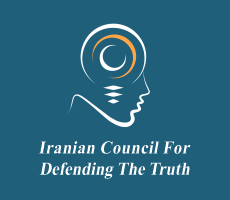The success of the Taliban’s lightning-fast nationwide offensive in the wake of the US’ impending military withdrawal by 31 August has taken many observers off guard, including those in Iran. It was especially surprising that the group even managed to take control of an Iranian border crossing over the weekend, which followed some of their representatives traveling to Tehran for consultations on the ongoing Afghan peace process as well as Moscow soon thereafter.
That military victory was but the latest in a string of similar such ones along the borders with Tajikistan and Turkmenistan. In one fell swoop, the Taliban preempted the scenario of any regional countries providing meaningful assistance to Kabul or local anti-Taliban groups, thereby reducing the likelihood of the 1990s civil war stalemate repeating itself. They also announced right before those captures that they’ll present a written peace plan during the next round of talks in August. From the looks of it, the Taliban might win the war.
It’s too early to predict what terms they’ll request that Kabul comply with in exchange for a peaceful settlement to the country’s long-running conflict, but the Taliban certainly holds all the cards while the internationally recognized Afghan government has lost a lot of its leverage in recent weeks. The region should therefore prepare to accept the armed group becoming a legitimate part of that country’s leadership, whether in part due to a peace deal or in whole if it militarily captures of the capital sometime in the future.
This development necessitates a pragmatic policy towards the Taliban, which is still regarded as a terrorist group by most of the world. China, Iran, and especially Russia have hosted their political representatives as part of the peace process, therefore displaying a pragmatism which implies a tacit degree of political acceptance in spite of their official stance towards the movement. These incipient steps should be built upon as the basis for formal acknowledgment of the Taliban as a legitimate actor in the event that it returns to power as expected.
The group’s 2021 iteration is very different from its 2001 form when the US invaded Afghanistan in order to oust the Taliban as punishment for its hosting of Osama Bin Laden. Although it still espouses a very conservative vision of socio-political relations at home, it promised to respect women’s right to receive an education and work. The Taliban also agreed to cut all ties with foreign terrorist groups as part of last year’s peace deal with the US, which includes never hosting any such organizations ever again.
Iran’s interests in Afghanistan are several. It doesn’t want any terrorist groups like ISIS-K attacking Iran from that neighboring country, and it also hopes that local Shia there can live their lives free from fear of extremist groups. In addition, Iran and Afghanistan share many close civilizational ties due to their shared history over the millennia so Tehran aspires to enhance people-to-people cooperation as well. Perhaps most importantly, though, is Afghanistan’s role in Iran’s long-term economic strategy.
The 25-year Chinese-Iranian Strategic Partnership agreement that was reached in March of this year will ultimately turn the People’s Republic into the Islamic Republic’s top economic partner. Not only is this expected to result in a flood of investments in coming years, but also closer commercial connectivity too. The shortest route between the two countries is across Afghanistan and Tajikistan, the latter of which is also closely connected to Iran on a civilizational level due to their similarly long shared history.
It’s therefore in Iran’s grand strategic interests to cultivate pragmatic ties with the Taliban if the group succeeds in coming to power, whether partly or in full, as expected sometime in the coming future. Iran and China must be able to rely on the safe transit of goods across Afghanistan, which will also benefit the Taliban through transit fees. Not only that, but average Afghans and Tajiks alike can take advantage of what can be described as the “Persian Corridor” through their countries to improve their socio-economic situations with time.
The combination of Chinese capital & commercial power coupled with Iran’s civilizational ties with Afghanistan & Tajikistan can turn the Persian Corridor into one of the most promising Silk Roads across the coming century provided that it’s properly managed by all parties. The first step in that direction is for the pertinent Afghan-neighboring countries (China, Iran, and Tajikistan) to continue pragmatically engaging with the Taliban and then working with it as an equal partner if it succeeds in becoming an official part of the Afghan state.
With this ambitious and mutually beneficial vision in mind, Iran needn’t be worried about the Taliban’s likely return to power. Although some in Tehran might not have preferred such a scenario, they must demonstrate flexibility in the face of such rapidly changing circumstances in order to advance their national interests, among the most important of which is the Persian Corridor to China via Afghanistan and Tajikistan. Iran and the Taliban might never trust one another, but so long as they share the same interests, they can still work well together.


[…] was agreed to in February and which might ultimately extend as far northward as Russia and the “Persian Corridor” between China and Iran via Tajikistan and […]
[…] was agreed to in February and which might ultimately extend as far northward as Russia and the “Persian Corridor” between China and Iran via Tajikistan and […]
[…] Minister of External Affairs (MEA) Jaishankar’s trips to Tehran and Moscow obviously concerned the situation in Afghanistan, but it’s improbable that either of his hosts would have agreed to any speculative proposal to revive the “Northern Alliance”. Unlike during the 1990s, Russia and Iran nowadays have very serious connectivity interests in Afghanistan. The first-mentioned wants to take advantage of the Pakistan, Afghanistan, Uzbekistan (PAKAFUZ) railway that was agreed to in February in order to fulfill its centuries-long dream of reaching the Indian Ocean while the second wants to connect with China through Afghanistan and Tajikistan. […]
[…] وزیر برائے امور خارجہ (ایم ای اے) جیشنکر کے تہران اور ماسکو کے دوروں نے واضح طور پر افغانستان کی صورتحال پر تشویش کا اظہار کیا ہے ، لیکن یہ ناممکن ہے کہ ان کے میزبانوں میں سے کوئی بھی “شمالی اتحاد” کی بحالی کے لئے کسی قیاس آرائی کی تجویز پر راضی ہوجاتا۔ 1990 کی دہائی کے برعکس ، آج کل روس اور ایران کے افغانستان میں رابطے کے بہت سنگین مفادات ہیں۔ پہلا ذکر کرنے والا پاکستان ، افغانستان ، ازبکستان سے فائدہ اٹھانا چاہتا ہے (پاکافاز) ریلوے جس پر فروری میں اتفاق ہوا تھا تاکہ اس کے صدیوں طویل خواب کو پورا کیا جاسکے بحر ہند تک پہنچنا جبکہ دوسرا چاہتا ہے افغانستان اور تاجکستان کے راستے چین سے رابطہ قائم کریں. […]
[…] Minister of External Affairs (MEA) Jaishankar’s trips to Tehran and Moscow obviously concerned the situation in Afghanistan, but it’s improbable that either of his hosts would have agreed to any speculative proposal to revive the “Northern Alliance”. Unlike during the 1990s, Russia and Iran nowadays have very serious connectivity interests in Afghanistan. The first-mentioned wants to take advantage of the Pakistan, Afghanistan, Uzbekistan (PAKAFUZ) railway that was agreed to in February in order to fulfill its centuries-long dream of reaching the Indian Ocean while the second wants to connect with China through Afghanistan and Tajikistan. […]
[…] China’s modernisation of eastern Tajikistan’s mountainous road network can pioneer a “Persian Corridor” through that country and Afghanistan to Iran, which recently clinched a 25-year strategic […]
[…] if it commits to doing this. China would prefer to most directly connect with Iran via the “Persian Corridor” through Tajikistan and Afghanistan, but this route could just be replaced with W-CPEC+ if made […]